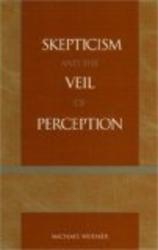Description
Skepticism is the philosophical position that claims that we know nothing for certain. Philosophical skeptics include Descartes, who claimed that we can know only that we are thinking, and that our thoughts are nothing more than mental representations. Representationalists claim that we can gain knowledge of the external world by inferring the properties of mental representations from the properties of the external world. In contrast, Huemer develops a theory of perceptual awareness in which we have direct awareness of real objects, not mental representations. He confronts the four main arguments for philosophical skepticism and shows that they are powerless against this kind of theory of perceptual knowledge.
Since Descartes, one of the central questions of Western philosophy has been that of how we know that the objects we seem to perceive are real. Philosophical skeptics claim that we know no such thing. Representationalists claim that we can gain such knowledge only by inference, by showing that the hypothesis of a real world is the best explanation for the kind of sensations and mental images we experience. Both accept the doctrine of a 'veil of perception': that perception can only give us direct awareness of images or representations of objects, not the external objects themselves. In contrast, Huemer develops a theory of perceptual awareness in which perception gives us direct awareness of real objects, not mental representations, and we have non-inferential knowledge of the properties of these objects. Further, Huemer confronts the four main arguments for philosophical skepticism, showing that they are powerless against this kind of theory of perceptual knowledge.
